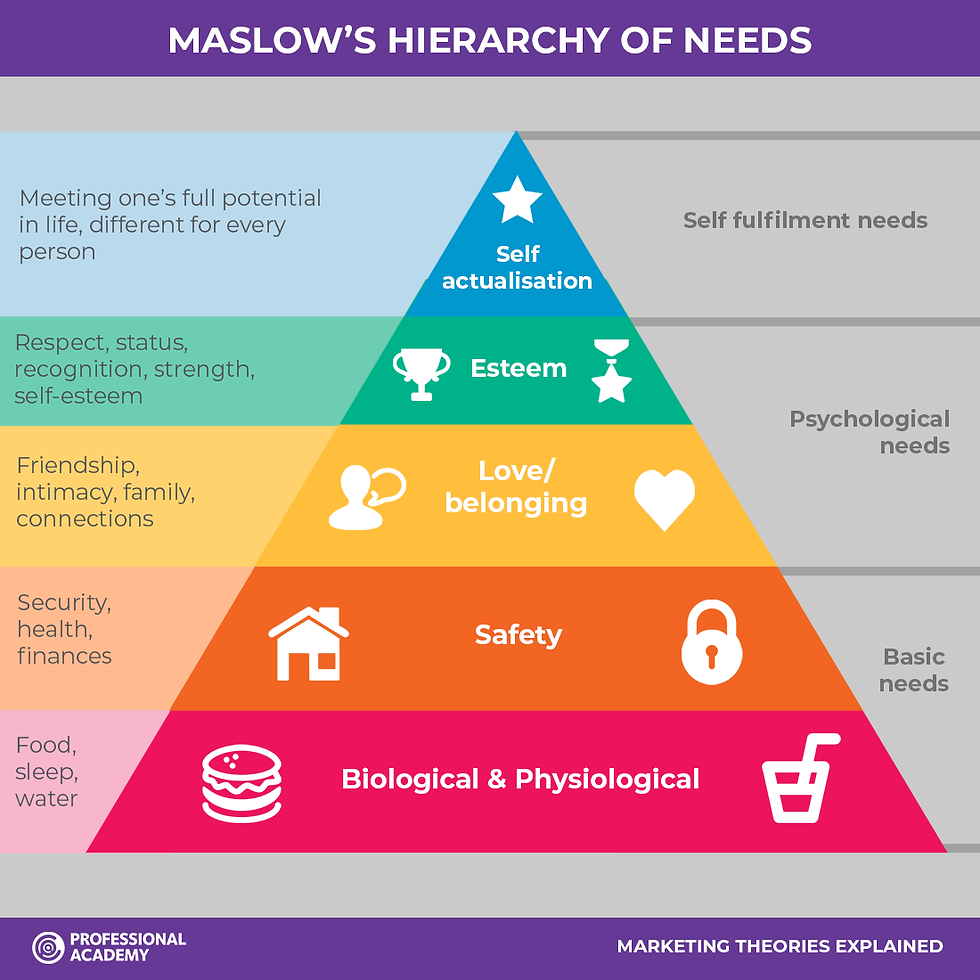Can the endeavour to meet Human Needs drive Workers Compensation System design and delivery?
- Danielle Mik

- Sep 23, 2023
- 3 min read
There has been much discussion recently about the state of workers compensation in Australia, particularly in Victoria and NSW. So it sets one to thinking – “how can the system work so that participants comes through it with injured workers achieving maximal recovery and being mentally healthy while employers and the scheme remain fiscally solvent”?
We have all heard the many horror stories of the broken people that have come through various workers compensation systems. So the pressing question is “how can we fix the problems that exist so that injured workers obtain fair entitlements, achieve the best recovery possible and come through the process with their mental health intact while at the same time employers feel the process is fair and the system remains funded”?
This seems to present a conundrum that most workers compensation systems cant fully resolve. Some have implemented positive changes in that direction but none seem to have cracked the safe that holds the answer - but what if we approached the workers compensation process in terms of meeting all participants basic human needs? After all - they are what drives our behaviour.
Maslow’s Hierarchy is a well accepted motivational theory in psychology outlining human needs – it argues that “humans have a series of needs, some of which must be met before they can turn their attention toward other needs” (Psychology Today www.psychologytoday.com).
So - what if we can design a workers compensation system that meets people’s innate needs? There is then is a much better chance of faster recovery, with less chance of deleterious mental health issues which in turn reduces the overall costs to the scheme for income replacement, medical treatment, medication and disputes. This would require a significant paradigm shift in the current 'insurance approach to workers compensation, and the pedagogy for delivery of services would require some transformation.
So – what do humans really need? Many life coaches, career coaches and motivational experts have developed various models and theories to explain these needs – pulling some of the various theories together leads us to a model that might look something like this.

Some human needs are more fundamental to us than others and impact our very survival, others while not a basic survival need, are fundamental to healthy mental functioning. Hence these needs must be met first – like food, shelter, sleep, security, love, connection, significance and certainty.
When the basic needs of life such as food, shelter, sleep and security aren’t met our very survival is threatened, and as a result our flight and flight response kicks in. This triggers a full body response that not only activates a set of physical reactions but also mental ones which act to limit our ability to make life decisions and consider our long term future. Our brain focuses on the “NOW” to ensure our survival as that’s the brain’s job.
Our need for growth and development or self-actualisation have very little importance to us when we cant afford to put food on the table, cant sleep from anxiety or pain, feel isolated and alone, feel we don’t matter to those that have control of our life or future, and there is no certainty about our life direction. It is no doubt unrealistic to expect any compensation system to meet a person’s higher order needs – but it should certainly meet a person’s BASIC LIFE NEEDS, which are critical necessities to daily functioning and mental health.
So the question becomes - can we align service delivery and legislation in the workers compensation system so that we can both meet the basic life needs of injured workers and also deliver a system that is suitable for employers, while being appropriately funded? Is that actually too much to ask?
I suggest that there are many aspects of service delivery can meet an injured workers needs without any increase to funding requirements – things like – early and direct case manager contact, rapid pay determination, correct payment calculation and payment, early treatment provision, legislative education to employers on early on claim lodgement, client centred delivery, authentic and empathic interaction with stakeholders to name but a few.
Perhaps by giving more consideration to creating system design and delivery that meets human needs whilst ensuring employers feel the process is fair, and the system remains funded could bring much better results for all stakeholders in the system. Reminding ourselves that the system primarily exists to assist injured workers restore their health and return to work and they are the people most negatively affected by the current legislation and service delivery paradigms.
Whilst I believe this ideal can be realised, I am interested in generating discussion from those involved in the workers compensation system about the ways in which this can be accomplished so we can all be a force to improve a struggling system.






Comments